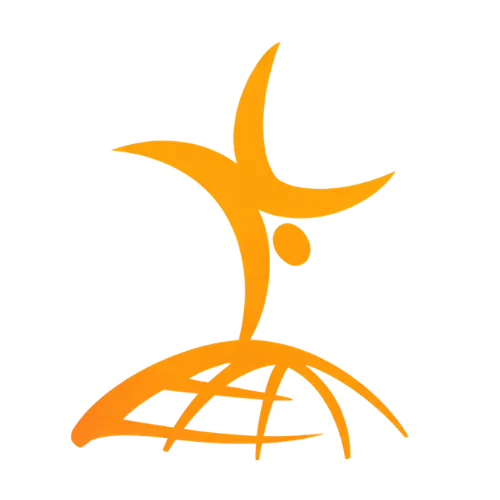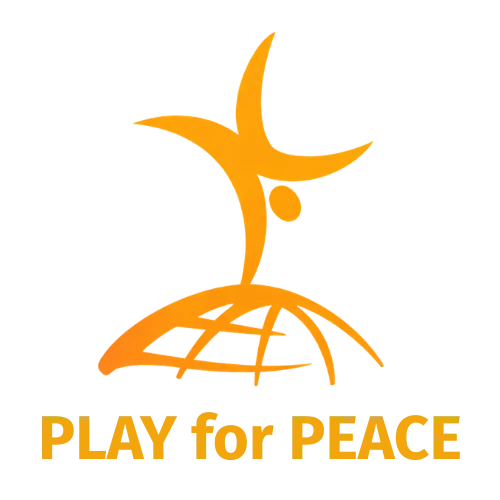Our Outcomes
We have found that participation in Play for Peace positively influences personal development, interpersonal relationships and community cultural norms even in the most challenging areas of the world to work. While every community is different we find that there are 3 main outcomes we achieve including creating and supporting; more compassionate citizens, relationships across divides and thriving communities.
We learned about the impact of Play for Peace because opportunities for feedback are embedded in the work that we do. We also continuously strive to improve our peace-building practices through on-going evaluation and research that is collaborative, multi-country evaluation, that will work to strengthen the impact of Play for Peace programs, to in the long-run achieve societal transformation. The following data is from our 2018 annual survey.
xyz
Inspired to Become a Compassionate Citizen
Dipen and Pratima were never meant to be friends in Nepal. Dipen is a member of the marginalized Dalit caste and has experienced much discrimination. Pratima is from a higher caste. The caste system often prevents children from interacting with each other, which deepens their prejudices. Through Play for Peace, Pratima has not only learned to have better relationships with other you, but she has also interacted with people from different castes - and became best friends with Dipen in the process.
"Play for Peace helps children and youth make new friends that they never imagined were possible."
Inspired to Become a Friends Across Divides
Dipen and Pratima were never meant to be friends in Nepal. Dipen is a member of the marginalized Dalit caste and has experienced much discrimination. Pratima is from a higher caste. The caste system often prevents children from interacting with each other, which deepens their prejudices. Through Play for Peace, Pratima has not only learned to have better relationships with other you, but she has also interacted with people from different castes - and became best friends with Dipen in the process.
"Play for Peace helps children and youth make new friends that they never imagined were possible."
Building Thriving Communities Together
Building Thriving Communities Together
The 36-year long civil war has left Guatemalan communities deeply scarred. Alicia returned to Guatemala in 1997 after growing up in a refugee camp in Mexico, escaping the fate of many who stayed and were murdered as a result. But her family was not welcomed back until Alicia was invited to be a Play for peace youth leader to unite the two communities. 20 years later, Alicia still uses Play for Peace in her women's training organization to integrate the community and facilitate a lively exchange between young and old now facing new issues of gang and political violence.
"Play for Peace gave me the chance to exchange ideas and thoughts between young Guatemalans and the ones who had returned, all of them having gone through trauma because of the war."
Our Youth
of Play for Peace youth leaders surveyed feel that Play for Peace helps them feel more moments of joy.
of Play for Peace youth leaders surveyed feel that Play for Peace helps them feel more moments of hope.
93% of Play for Peace youth leaders surveyed feel that Play for Peace helps their communities to be safer.
92% of Play for Peace youth leaders feel that Play for Peace helps them feel they are more compassionate since joining Play for Peace.
85% of Play for Peace youth leaders report having made more friends from different backgrounds since joining Play for Peace.
A Youth with Hope & Dedication
Tweety joined the Play for Peace in high school. As an active volunteer, she met other teens who shared the same quest to make meaningful contributions to the community. In the Philippines, communities are divided, which are most commonly related to rural areas in the U.S., and the elders have clashes with other sitios. Tweety finds that acting as one community is quite complex, and that youth tend to separate themselves and connect less with others. who have no healthy outlet to address these life challenges are often stricken with anxiety and depression, and those who lack a strong suppoYouth rt system have thoughts of uselessness, hopelessness, and suicide. This is where a family—like Play for Peace—comes in, united youth across divides and providing joy and hope.
"Play for Peace is a family of inspiring people who see a better place through engaging in experiential learning that promotes peace through games."
Our Mentors
100% of Play for Peace local mentors surveyed feel that Play for Peace helps them feel more moments of joy.
100% of Play for Peace local mentors surveyed feel that Play for Peace helps them feel more moments of hope.
100% of Play for Peace local mentors surveyed feel that Play for Peace helps them feel more compassionate since joining Play for Peace.
A Mentor with a Passion for Peace
A Mentor with a Passion for Peace
Aninilavan (Ani), a young Tamil from Mullaitivu , Sri Lanka, was ten years old when the civil war finally ended in 2009. This war left the population traumatized and the country’s economy deeply affected. Ani has seen more death and destruction than any young boy should have to witness in a lifetime. Instead of resentment, Ani chose to become a peace builder in Sri Lanka and a mentor to a Play for Peace Club in his community. The group called “Breeze for Peace” are now organizing practice peace sessions in their community and in schools.
"It’s the youth that can change everything in the future. I see a good future for Sri Lanka. My dream is to be a peacebuilder, but before that I need to be a good Sri Lankan, without any ethnic or racist thoughts. I think peace is possible."
Our Community Members
of Play for Peace community members surveyed feel that Play for Peace helps them feel more moments of joy.
of Play for Peace community members surveyed feel that Play for Peace helps them feel more moments of hope.
of Play for Peace community members surveyed feel that Play for Peace youth leaders are productive members of their communities since joining Play for Peace.
A Community in Healing
Like neighboring Rwanda, Burundi has faced ethnic violence and massacres since gaining independence in 1962. New Play for Peace partner organization, Trauma Healing and Reconciliation Services (THARS), organized Play for Peace training workshops in reaching over 600 students. They work is carve a new path to peace by providing resources for trauma healing and reconciliation in Burundi and the African Great Lakes Region and are using Play for Peace to do it.
"We are planning to use these games in our community meetings as well as in the schools."
Research papers
What kids are saying...

"Honoring all that PFP does"
"Honoring all that PFP does in bringing hope and empowering others. I am also grateful for Craig Dobkin's decision to do an Outward Bound course at Dartmouth, where we first met, and for all the lives he has touched through his indomitable spirit and courageous work."
- Bob and Peggy MacArthur


"What the world needs"
"I have a dream, to see the day when the impossible becomes possible. Play for Peace is exactly what the world needs to see as reality. When you believe, 1 and 2 and 5 will make a million. Thank you Craig for getting me started at Longview HS, Lakewood, Colorado."
- Peter von Hemert


"Worthy and constructive"
"Pleased to support such a worthy and constructive cause. The world needs more bridge-building organizations and efforts such as this."
- Bruce Delahorne

want to learn more about giving with play for peace?
Invest in peace now for a legacy of change!
We invite potential major donors to book a meeting with Marily to explore impactful giving options, including stocks, estate planning, and other opportunities. Discover how your contributions can leave a lasting legacy and further the mission of fostering peace worldwide.
Want To Connect With Us?
We’d love to hear from you and explore how we can make a difference together.
Designed with love by Francisco Hueyatl León. Copyright 2026. Play for Peace. All Rights Reserved. EIN 36-4254565

